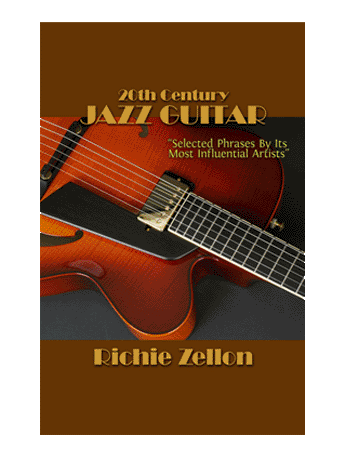A Guide to Lead Sheet Chords when Comping
Recently I noticed that most lessons on comping for guitar focus primarily on the “rhythmic” aspect. While this is important, I believe that the harmonic implications are just as important, yet often neglected when discussing this subject. So I decided to do a lesson on several chord related aspects we must be aware of when comping from a lead sheet. Interested? If so, please read on…
Have you ever wondered why some lead sheets for a given standard have different chord symbol spellings? One might have a plain C in the second measure, while another one might have a Cmaj7, yet another one, a C followed by a triangle or even an Em/C! And how about the ones that have every upper extension after the C…like Cmaj9(#11/13)? What are we as guitarists really expected to play? After all, we only have 6 strings and 4 fingers to play these chords.
In this video lesson I answer the above questions and more. In doing so, I go into detail to help you make sense of the assorted spellings for different chord family symbols you are bound to encounter in various lead sheets. I also help you determine what extensions to play when they aren’t included. Furthermore I touch on the concept of voice leading which is crucial when comping. This is followed by a demonstration of how I would interpret the changes from a lead sheet to a popular standard as I comp.
5 Comments
Submit a Comment
You must be logged in to post a comment.

Do I have to pay each time you present new knowledge ???
If you are asking if you have to pay to “download” the materials for new individual lessons, yes! Unless you become an Elite member. Please read info at https://jazzguitar.richiezellon.com/elite-membership
and also at the top of https://jazzguitar.richiezellon.com/premium
nice! 45 years on the guitar. first ever lesson studies about 10 weeks ago, studying theory and using jazz and the vehicle.
i have a professional career that took me away from gigging 30 years ago. back in the day [late 70s through the 80s] i had skills in rock and blues, and barroom honk. i knew diddly about theory. i was a hot, showboat style player covering mostly testosterone-driven tunes. most guys were like this back then, at least in my world. basically i could take a tune, cover it adequately, and show it off to the crowd.
but not knowing any theory, i had no knowledge of what i was doing despite the fact that i could do it. one downside of this is the lack of being able to remember songs. without a framework, or theory-lattice, i had no scaffolding from which to hang the ornamental notes of a song. i didn’t know this in real-time but i do now.
so studying jazz – it’s a brave new world!
i have two instructors. one live. one remote. LIVE guy is a died in the wool jazz guitar traditionalist. other forms of music are reserved for the mongrels. REMOTE guy is a touring/session guy from LA, with a huge, strong jazz pedigree.
both are deeply steeped in theory. REMOTE is a virtuoso in basically all styles. LIVE is jazz, and jazz only. mention someone like Robben Ford to LIVE guy, and he stares into space as though there is no such person. every now and then i’ll rip a SRV lick or recognizable zztop riff just to watch him twist:)
both guys are monster players and the instruction is great. it is enhanced by the contrasting perspectives among LIVE and REMOTE personalities.
this site is a nice bridge for all things. well done. very helpful.
i can see why studying jazz at the university level is helpful. unlike most other styles, the process of learning coupled with performing what is learned, requires a tremendous amount of developmental time.
for example. i never before played or practiced the major scale in 3ds. now, i can rip out scuttle-buttin by SRV, but struggled like a newborn when doing the basic scale exercises. it took me a few weeks of daily repetition to be able to do it smoothly.
and this is what makes studying jazz a disciplinary endeavor. necessary skills take time to develop, so the knowledge based studies need to be tempered somewhat to match mental-to-physical progress. thus, lots of things are on individual tracks moving at relatively different speeds.
again, well done on the site. cheers………cg
Excellent and very relevant information. No fluff…love it.
Thanks David!